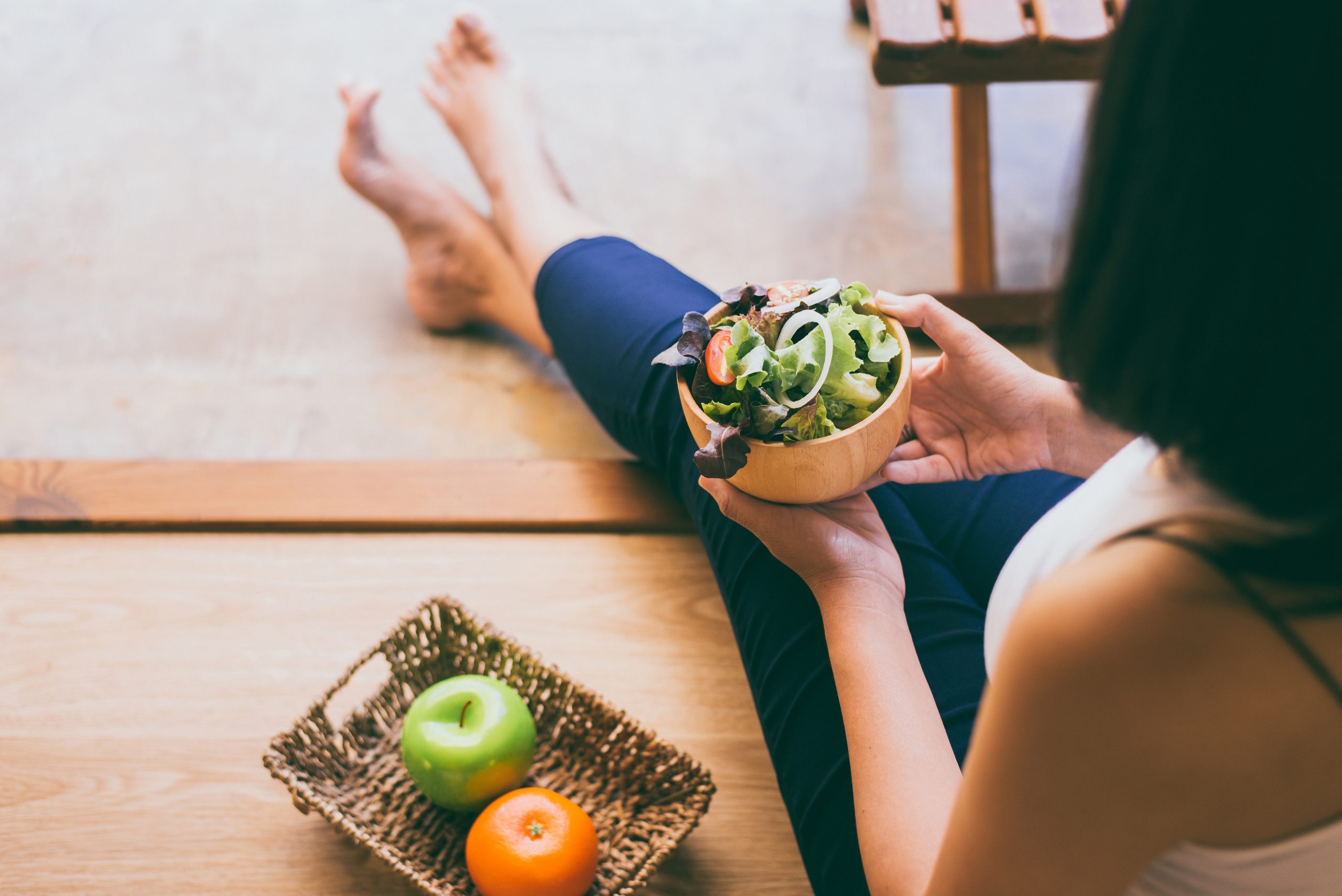Aside from nutrition, what else can we do to improve our health and well being?
Physical activity and exercise
Physical and mental health are interconnected. When we are suffering physically it can lead to depression or anxiety, and those who suffer from mental health issues can be less inclined to participate in a daily exercise routine.
Engaging in exercise can provide many benefits from boosting happy hormones, increasing mental clarity, improving respiratory and heart health, increasing energy, improving sleep, reducing depression and engaging in social contact which can increase our sense of belonging and enhance our mood.
Exercise does not have to be high intensity to provide benefits for wellbeing and health.
Walking, Yoga, swimming, Pilates, tai chi, qui gong are great types of holistic exercise.
There are many recommendations around how much a day is beneficial, but any amount is a wonderful starting point. Even just walking round the garden or up and down stairs can be helpful. But, of course, a regular practice throughout the week is best. And often the more we do the more we want to do!
Sleep and rest
The quality of our sleep and rest impacts our health and especially our mood. A poor night’s sleep will affect our mood and energy especially for the following day. Keeping to a regular sleep schedule and avoiding blue light emitted from electronic devices, such as phones, televisions, and computer screens before bed are a couple of strategies that can improve sleep quality.
Aiming to eat at more or less the same times each day helps to synchronise our sleep cycle and especially not eating close to bedtime.
Herbal teas such as chamomile, a warm bath with lavender essential oil and soothing music or meditation tape will be beneficial as part of your sleep hygiene.
Caffeine
Caffeine is a natural chemical known as a stimulant because it increases the activity of the body’s nervous system. Common sources of caffeine include coffee, tea, and energy drinks.
In general it takes the body 3 to 7 hours to break down half of the caffeine in its system. Due to this, caffeine has lasting effects that make it harder to sleep, even if consumed six hours before bed. Aim to limit caffeine later in the day to support energy and sleep levels. There are lots of alternatives including herbal teas such as chamomile and lemon balm, hot water infused with lemon and ginger, dandelion ‘coffee’, warm plant milk beverages such as turmeric milk (golden milk).
Alcohol
Alcohol has been linked with poorer sleep quality and duration. Some ideas for those looking for alternative beverages include kombucha, carbonated water with a splash of flavour like elderflower or lime, freezing juice in an ice tray and using the cubes in carbonated water.
More on Hydration
Water is necessary for all processes in the body, but often we don’t get enough. Even mild dehydration can cause fatigue, daytime sleepiness, mood changes, and a drop in cognitive performance.
Keeping a glass of water on our desk or side table is one way to remember to stay hydrated, and we can make it more fun by flavouring water with fruits, cucumber, or fresh herbs such as mint.
Stress management
Practising meditations and mindfulness techniques are helpful for recognising where emotions stem from and helps to support addressing the root causes. These strategies can support our moods and health.
Nature
Time in nature has always been associated with health and happiness. Recently there has been more interest in the benefits of nature, for good reason. Being outdoors in nature is connected to improvement in mental health, mood and well being. Green environments, such as being around trees, forests, the ocean, lakes and mountains, may reduce cortisol the hormone, that when high, is associated with promoting stress.
Break the fast
Breakfast is the most important meal of the day. It is a chance to replenish our energy stores after fasting during sleep. Those who consistently eat breakfast have better sleep quality, mood and alertness compared to those who miss breakfast. If you find it difficult to eat breakfast, try a green smoothie. Some other ideas to boost energy include granola or oats with plant based milk and fruits or breakfast wraps or ‘left overs’ from dinner.
Salt
Generally the effects of too much salt is well known, such as increasing the risk of heart and circulatory problems and impacting our energy. Salt intake and salty snacks, before bed, have been shown to disrupt sleep. Consider adding some natural salt to your home cooking such as Himalayan rock salt and using herbs and spices to enhance flavour in place of excess salt.

